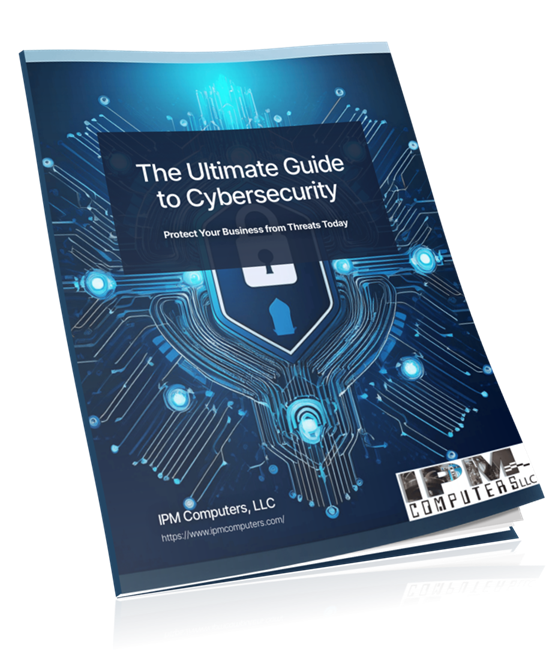In tourism, protecting guest data is of utmost importance. With more online bookings and digital interactions happening, the risk of data breaches has gone up significantly. Keeping sensitive information safe maintains customer trust while meeting legal requirements.
Myrtle Beach IT support helps by:
- Improving customer experiences with dependable technology solutions
- Making operations more efficient
- Implementing strong security measures to safeguard guest information
Companies that prioritize IT support have a competitive advantage, providing their customers with a smooth experience while upholding strict data protection standards. By using advanced technologies and leveraging Myrtle Beach managed services, businesses can enhance their service delivery and operational capabilities, leading to greater success in the industry.
The Role of IT Support in Tourism
IT support provides important services that make operations run smoothly and improve customer experiences. In this context, IT solutions include a wide range of services designed to make processes and communication more efficient and smoother.
Advantages of Strong IT Infrastructure
A strong IT infrastructure offers many benefits, such as:
- Improved Service Delivery: Efficient systems enable staff to manage bookings, reservations, and customer inquiries swiftly, translating to enhanced guest satisfaction.
- Increased Competitiveness: With technology-driven solutions, businesses can differentiate themselves in a crowded market by offering personalized services tailored to customer preferences.
Cybersecurity Measures
As business handle sensitive customer information constantly, cybersecurity becomes mission critical. Some measures include:
- Firewalls
- Data Encryption
- Regular Security Audits
By investing in comprehensive IT support and prioritizing cybersecurity, tourism businesses can effectively protect customer data while optimizing their operations. This proactive approach enhances guest experiences while fostering trust and loyalty among customers.
Common IT Challenges Faced by Tourism Businesses
Companies frequently encounter several IT challenges that can affect their operations and guest experiences. Key issues include:
- Unreliable Wi-Fi: Guests expect seamless connectivity. Slow or inconsistent internet can frustrate customers, leading to negative reviews and reduced satisfaction.
- Inefficient Booking Systems: Many tourism businesses still rely on outdated or disjointed booking platforms. This inefficiency can result in double bookings, lost reservations, and miscommunication with customers.
- Seasonal Demand Fluctuations: The tourism industry often experiences peaks and valleys in customer traffic. Without scalable IT systems, businesses struggle to manage increased demand during peak seasons, resulting in overwhelmed staff and inadequate service delivery.
- Cybersecurity Threats: Tourism businesses are prime targets for cyberattacks due to the sensitive nature of customer data. A breach jeopardizes customer trust and can lead to financial and reputational damage.
Addressing these issues proactively helps maintain operational efficiency and enhances customer satisfaction. Recognizing the impact of these obstacles allows businesses to seek tailored IT solutions that directly address their unique needs.
Using Technology to Improve Guest Experiences
Technology enhances customer satisfaction through IT solutions. By implementing advanced systems, businesses can provide outstanding guest experiences tailored to individual preferences. Here are areas where technology can make a difference:
1. Personalized Services
Using data analytics, companies can gain insights into guest behavior and customize their services accordingly. This could involve offering personalized recommendations for activities or dining options based on previous visits or expressed interests.
2. Seamless Communication Channels
With the introduction of mobile apps, guests can now communicate directly with staff, access information, and make requests effortlessly. Features like chatbots give instant responses, resulting in quicker service and improved efficiency.
3. Automated Check-In Processes
By utilizing mobile applications or self-service kiosks, the check-in experience can be streamlined, reducing wait times and allowing guests to begin their stay with convenience.
4. Real-Time Updates
Keeping guests informed and engaged during their stay is essential. Providing them with updates about reservations, weather changes, or local events helps keep guests in the loop.
Investing in these technological solutions enhances the guest experience and improves operational efficiency. Organizations that prioritize these advancements stand out in a competitive tourism industry, leading to long-lasting customer loyalty and satisfaction.
Maintaining Data Protection and GDPR Compliance
GDPR compliance for businesses is not just a regulatory requirement; it’s paramount for maintaining customer trust and safeguarding sensitive information. The General Data Protection Regulation (GDPR) sets stringent guidelines for the collection, processing, and storage of personal data. Non-compliance can lead to hefty fines and reputational damage.
For data protection, companies should implement several strategies:
- Firewalls: Establish robust firewalls to protect networks from unauthorized access. A strong firewall acts as a barrier between trusted internal networks and untrusted external networks.
- Encryption: Use encryption for sensitive data both at rest and in transit. This guarantees that even if data is intercepted, it remains unreadable without the appropriate decryption key.
- Regular Security Audits: Conduct frequent security audits to identify vulnerabilities within systems. Regular assessments help in updating security measures and maintaining compliance with evolving regulations.
- Multi-Factor Authentication (MFA): Implement MFA to add an extra layer of security during user logins. This requires users to provide two or more verification factors, reducing the risk of unauthorized access.
- Employee Training: Educate employees about data protection policies and best practices. Awareness programs can reduce human error, which is often a weak link in cybersecurity.
Optimizing Operational Efficiency with Scalable IT Systems
Scalable IT solutions for businesses help manage the fluctuating demands of the industry. Seasonal variations can lead to changes in customer traffic and booking volumes. By implementing scalable systems, tourism companies can effectively adjust their resources in response to these dynamics. This flexibility prepares businesses for peak seasons without incurring unnecessary costs during quieter periods.
Benefits include:
- Dynamic Resource Management: Scalable systems allow for the allocation of resources based on real-time demand, optimizing operational efficiency.
- Cost-Effectiveness: Businesses can scale up or down, minimizing expenses while maintaining quality service.
Integrating various technology solutions is an important step for centralized management and streamlined operations. Combining booking systems with property management software creates a cohesive ecosystem that enhances productivity. Benefits of this involve:
- Improved Data Flow: A unified system reduces data silos, allowing all departments to have access to accurate and timely information.
- Enhanced Customer Experience: Seamless processes lead to quicker response times and personalized services, boosting customer satisfaction.
- Automated Processes: Routine tasks such as bookings and inventory management can be automated, allowing staff to focus on delivering exceptional service.
Advanced Cybersecurity Solutions for Safeguarding Customer Payment Information
Safeguarding sensitive customer payment information is critical. Cyber threats can severely impact business reputation and customer trust. Implementing advanced cybersecurity strategies should not be overlooked for tourism companies to prevent these threats.
Key cybersecurity measures include:
- Data Encryption: Encrypt sensitive data both in transit and at rest. This guarantees that even if data is intercepted, it remains unreadable to unauthorized users.
- Multi-Factor Authentication (MFA): Require multiple forms of verification before granting access to sensitive systems. MFA adds an extra layer of security, making it harder for cybercriminals to gain unauthorized access.
- Regular Security Audits: Conduct frequent assessments of your IT infrastructure to identify vulnerabilities. These audits help businesses stay ahead of potential threats by addressing weaknesses promptly.
- Firewalls and Intrusion Detection Systems (IDS): Implement robust firewalls and IDS to monitor incoming and outgoing traffic. These tools help detect suspicious activities and block potential attacks in real-time.
- Employee Training: Educate staff on cybersecurity best practices. Human error often contributes to security breaches; trained employees are paramount in defending against cyber threats.
Using the Power of Big Data and Analytics for Service Personalization in Travel Industry
In the travel industry, big data analytics enables businesses to gain insights into tourist behavior and preferences. By collecting and analyzing vast amounts of data, companies can tailor their services to meet the specific needs of their customers.
Benefits of big data analytics include:
- Understanding Customer Preferences: Analyzing booking patterns, customer reviews, and social media interactions helps businesses know what travelers value most. This insight allows companies to refine their offerings based on actual demand and preferences.
- Enhancing Personalization: With detailed data insights, travel businesses can create personalized marketing campaigns, recommend tailored experiences, and enhance customer interactions. For instance, using previous travel history enables companies to suggest destinations or activities that align with individual interests.
- Improving Customer Satisfaction: Personalization driven by analytics leads to a more satisfying customer experience. When guests feel understood and valued through tailored services, loyalty increases significantly.
- Predictive Analytics: Leveraging predictive models allows companies to forecast trends and adapt their services accordingly. Anticipating customer needs can lead to improved service delivery during peak seasons or special events.
Integrating big data analytics into operations enhances guest experiences and drives business growth. As the industry evolves, the ability to use data effectively becomes a game changer for staying competitive.
Choosing The Right Technology Partner
Selecting a reliable technology partner is an important step for companies aiming to enhance their operations and customer experiences. Here are some technology partner selection criteria to consider:
- Industry Expertise: Look for a provider with a deep grasp of the tourism sector. An expert partner can offer tailored solutions that meet the unique challenges of your business.
- Proven Track Record: Evaluate the partner’s past projects and client testimonials. Successful implementations indicate reliability and capability.
- Scalability: Technological solutions should grow with your business. A partner should provide systems that adapt to seasonal demand fluctuations without compromising performance.
- Security Measures: Prioritize partners who implement robust cybersecurity protocols. Protecting guest data is paramount, so inquire about their strategies for safeguarding sensitive information.
- Customization Options: Choose a provider that offers flexible solutions tailored to your specific needs. This customization can enhance operational efficiency and customer satisfaction.
Invest In Reliable IT Infrastructure for Secure Data Management
Investing in reliable IT infrastructure helps safeguard and secure guest data management. A well-structured IT system protects sensitive information while enhancing operational efficiency. Key points to consider include:
- Data Security: Robust infrastructure minimizes risks associated with data breaches, safeguarding customer information.
- Efficiency: Streamlined systems improve workflows, enabling timely responses to guest needs and inquiries.
- Compliance: Adhering to regulations fosters trust and accountability in handling customer data.
Organizations must prioritize cybersecurity measures as a fundamental aspect of their operations. Seeking professional support from specialized providers and taking regular data backups in Myrtle Beach SC can help keep your business safe. With tailored solutions and local expertise, we equip businesses with the tools necessary to thrive while maintaining guest confidence through secure data management practices.
Frequently Asked Questions About IT Management
Why is securing guest data important in the tourism sector?
Securing guest data is a big deal in the tourism sector to protect sensitive customer information from breaches, maintain trust, and comply with regulations like GDPR. A robust security framework keeps personnel and payment details safeguarded, enhancing overall customer confidence.
How does IT support enhance customer experience in tourism?
IT support plays a vital role in improving customer experience by providing seamless booking systems, personalized services, and efficient communication channels. This leads to better service delivery, increased competitiveness, and ultimately higher customer satisfaction.
What are common IT challenges faced by tourism businesses?
Tourism businesses often encounter challenges such as seasonal demand fluctuations, unreliable Wi-Fi, and inefficient booking systems. These issues can negatively impact guest experiences and disrupt business operations, making effective IT solutions crucial.
How can technology improve guest experiences in the tourism industry?
Technology enhances guest experiences by enabling personalized services through data analytics, enabling seamless communication via mobile apps, and streamlining booking processes. This results in higher customer satisfaction and loyalty.
What strategies should tourism companies implement for GDPR compliance?
To maintain GDPR compliance, tourism companies should implement strategies such as utilizing firewalls for network security, encrypting sensitive data, conducting regular security audits, and training staff on data protection best practices.
What criteria should travel companies consider when choosing a technology partner?
Travel companies should evaluate potential technology partners based on their industry expertise, understanding of specific challenges in tourism, ability to provide scalable solutions, and track record of successful collaborations.






